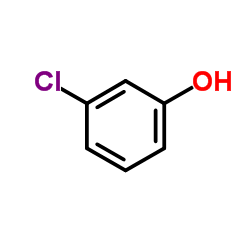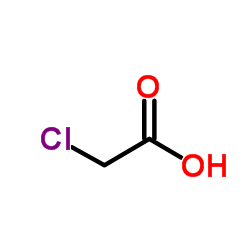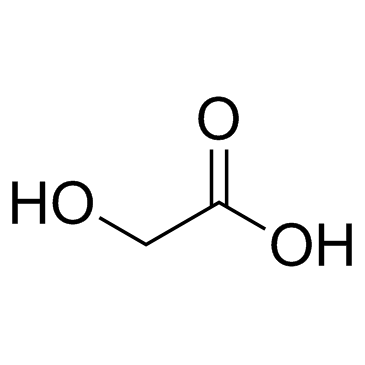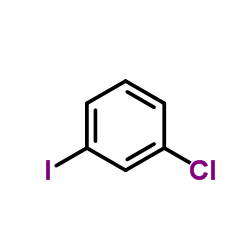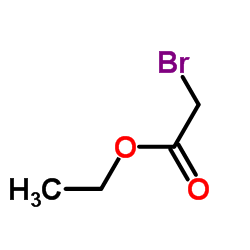588-32-9
| Name | (3-Chlorophenoxy)acetic Acid |
|---|---|
| Synonyms |
3-chlorophenoxyacetic acid
EINECS 209-616-6 2-(3-chlorophenoxy)acetic acid Acetic acid, 2-(3-chlorophenoxy)- MFCD00015850 (3-Chlorophenoxy)acetic acid Acetic acid, (3-chlorophenoxy)- |
| Density | 1.4±0.1 g/cm3 |
|---|---|
| Boiling Point | 315.2±17.0 °C at 760 mmHg |
| Melting Point | 106-111 °C |
| Molecular Formula | C8H7ClO3 |
| Molecular Weight | 186.592 |
| Flash Point | 144.4±20.9 °C |
| Exact Mass | 186.008377 |
| PSA | 46.53000 |
| LogP | 2.17 |
| Vapour Pressure | 0.0±0.7 mmHg at 25°C |
| Index of Refraction | 1.558 |
Synonym: Section 2 - COMPOSITION, INFORMATION ON INGREDIENTS
Risk Phrases: 22 Section 3 - HAZARDS IDENTIFICATION EMERGENCY OVERVIEW
Harmful if swallowed. Potential Health Effects Eye: May cause eye irritation. Skin: May cause skin irritation. May be harmful if absorbed through the skin. Ingestion: Harmful if swallowed. May cause irritation of the digestive tract. Inhalation: May cause respiratory tract irritation. May be harmful if inhaled. Chronic: Not available. Section 4 - FIRST AID MEASURES Eyes: Flush eyes with plenty of water for at least 15 minutes, occasionally lifting the upper and lower eyelids. Get medical aid. Skin: Get medical aid. Flush skin with plenty of water for at least 15 minutes while removing contaminated clothing and shoes. Ingestion: Get medical aid. Wash mouth out with water. Inhalation: Remove from exposure and move to fresh air immediately. If not breathing, give artificial respiration. If breathing is difficult, give oxygen. Get medical aid. Notes to Physician: Treat symptomatically and supportively. Section 5 - FIRE FIGHTING MEASURES General Information: As in any fire, wear a self-contained breathing apparatus in pressure-demand, MSHA/NIOSH (approved or equivalent), and full protective gear. Extinguishing Media: Use water spray, dry chemical, carbon dioxide, or chemical foam. Section 6 - ACCIDENTAL RELEASE MEASURES General Information: Use proper personal protective equipment as indicated in Section 8. Spills/Leaks: Vacuum or sweep up material and place into a suitable disposal container. Section 7 - HANDLING and STORAGE Handling: Avoid breathing dust, vapor, mist, or gas. Avoid contact with skin and eyes. Storage: Store in a cool, dry place. Store in a tightly closed container. Section 8 - EXPOSURE CONTROLS, PERSONAL PROTECTION Engineering Controls: Use adequate ventilation to keep airborne concentrations low. Exposure Limits CAS# 588-32-9: Personal Protective Equipment Eyes: Not available. Skin: Wear appropriate protective gloves to prevent skin exposure. Clothing: Wear appropriate protective clothing to prevent skin exposure. Respirators: Follow the OSHA respirator regulations found in 29 CFR 1910.134 or European Standard EN 149. Use a NIOSH/MSHA or European Standard EN 149 approved respirator if exposure limits are exceeded or if irritation or other symptoms are experienced. Section 9 - PHYSICAL AND CHEMICAL PROPERTIES Physical State: Powder Color: off-white Odor: Not available. pH: Not available. Vapor Pressure: Not available. Viscosity: Not available. Boiling Point: Not available. Freezing/Melting Point: 106 - 111 deg C Autoignition Temperature: Not available. Flash Point: Not available. Explosion Limits, lower: Not available. Explosion Limits, upper: Not available. Decomposition Temperature: Solubility in water: Specific Gravity/Density: Molecular Formula: C8H7ClO3 Molecular Weight: 186.59 Section 10 - STABILITY AND REACTIVITY Chemical Stability: Not available. Conditions to Avoid: Incompatible materials. Incompatibilities with Other Materials: Strong oxidizing agents. Hazardous Decomposition Products: Hydrogen chloride, carbon monoxide, carbon dioxide. Hazardous Polymerization: Has not been reported Section 11 - TOXICOLOGICAL INFORMATION RTECS#: CAS# 588-32-9 unlisted. LD50/LC50: Not available. Carcinogenicity: 3-Chlorophenoxyacetic acid - Not listed by ACGIH, IARC, or NTP. Section 12 - ECOLOGICAL INFORMATION Section 13 - DISPOSAL CONSIDERATIONS Dispose of in a manner consistent with federal, state, and local regulations. Section 14 - TRANSPORT INFORMATION IATA Not regulated as a hazardous material. IMO Not regulated as a hazardous material. RID/ADR Not regulated as a hazardous material. Section 15 - REGULATORY INFORMATION European/International Regulations European Labeling in Accordance with EC Directives Hazard Symbols: XN Risk Phrases: R 22 Harmful if swallowed. Safety Phrases: WGK (Water Danger/Protection) CAS# 588-32-9: No information available. Canada None of the chemicals in this product are listed on the DSL/NDSL list. CAS# 588-32-9 is not listed on Canada's Ingredient Disclosure List. US FEDERAL TSCA CAS# 588-32-9 is not listed on the TSCA inventory. It is for research and development use only. SECTION 16 - ADDITIONAL INFORMATION N/A |
| Hazard Codes | Xn:Harmful; |
|---|---|
| Risk Phrases | R22 |
| Safety Phrases | S22-S36/37 |
| RIDADR | 2811 |
| Packaging Group | III |
| Hazard Class | 6.1 |
| HS Code | 2918990090 |
|
~79% 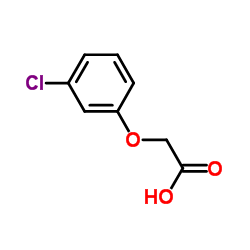
588-32-9 |
| Literature: Heescher, Carolin; Schollmeyer, Dieter; Nubbemeyer, Udo European Journal of Organic Chemistry, 2013 , # 20 p. 4399 - 4404 |
|
~76% 
588-32-9 |
| Literature: Xiao, Yan; Xu, Yongnan; Cheon, Hwan-Sung; Chae, Junghyun Journal of Organic Chemistry, 2013 , vol. 78, # 11 p. 5804 - 5809 |
|
~% 
588-32-9 |
| Literature: Bot. Gaz., , vol. 112, p. 250,252 |
|
~% 
588-32-9 |
| Literature: Contributions from Boyce Thompson Institute, , vol. 14, p. 91,95, 96 Chem.Abstr., , p. 1473 |
|
~% 
588-32-9 |
| Literature: Bot. Gaz., , vol. 112, p. 250,252 |
|
~% 
588-32-9 |
| Literature: Journal of Medicinal Chemistry, , vol. 15, # 9 p. 940 - 944 |
| HS Code | 2918990090 |
|---|---|
| Summary | 2918990090. other carboxylic acids with additional oxygen function and their anhydrides, halides, peroxides and peroxyacids; their halogenated, sulphonated, nitrated or nitrosated derivatives. VAT:17.0%. Tax rebate rate:13.0%. . MFN tariff:6.5%. General tariff:30.0% |

